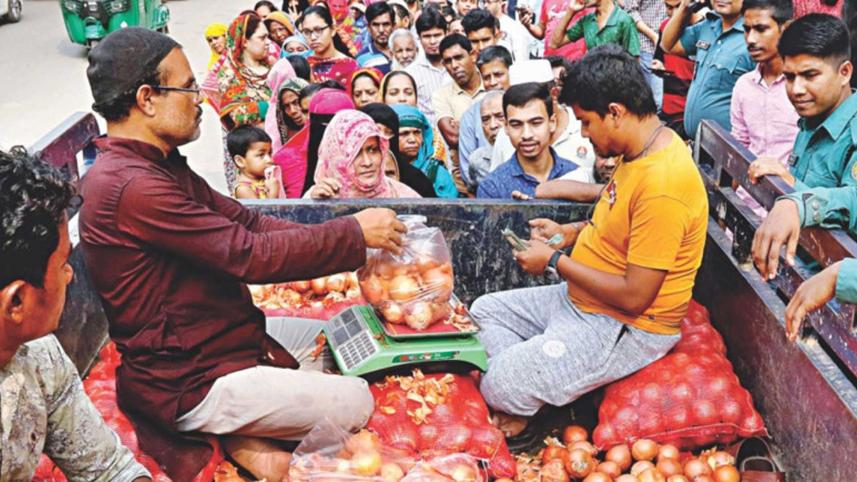Are we to face a global food crisis now?

The United Nations, only some days ago, had solemnly hinted at a worldwide food crisis following Russia's invasion of Ukraine, and now the World Bank has spelled it out distinctly that the world is facing a "human catastrophe" from soaring food and energy prices because of the war.
It is alarming that food prices all over the world, including in Bangladesh, are on the rise. It's a major cause for concern for the governments in most countries because, at the end of the day, people need food on their plates. The World Bank president predicts that the Ukraine war would eventually push hundreds of millions of people into poverty, unless it can be stopped immediately.
Even setting aside the prediction that there could be a 37 percent jump in food prices, people in Bangladesh will still have to deal with the recently increased (and increasing) prices of essentials amid their struggle to recover from the pandemic. Already, a report by the Food and Agriculture Organization (FAO) late last year stated that, in 2020, there were at least 52 million Bangladeshis without food security, 2.4 percent higher than the number in 2018. It seems even the basic need of affordable nutrition is to escape further and further from our grasp, unless world leaders act now.
It will be difficult for most developing countries to keep the wheels of their economies running in the midst of the food and energy crisis caused by the Ukraine war. Additionally, the fallout of the war has left as many as 60 percent of the poorest countries either in debt distress or at high risks of being in debt distress.
While the World Bank has suggested a release of food from large global stockpiles to deal with the crisis, Bangladesh must also work on reducing its dependency on imports as well as take urgent and responsible policies to address inflationary pressures in the economy. Meanwhile, it should purchase necessary commodities from the global market quickly and at competitive prices and distribute these items at reduced prices through open market sales to reduce the burden on ordinary people. Market monitoring is crucial to ensure that unscrupulous businessmen do not hike prices of imported items further, as has been the case for soy bean oil.
Bangladeshis have already been burdened for months by increasing prices of diesel, edible oil and grains, among other things. A global food crisis may be the nail in the coffin. We believe those at the helm of the Russia-Ukraine war must be responsive to the plight of millions of poor families and allow shipment of food grains from Ukrainian and other Russian ports to stave off the imminent global crisis.



 For all latest news, follow The Daily Star's Google News channel.
For all latest news, follow The Daily Star's Google News channel.
Comments